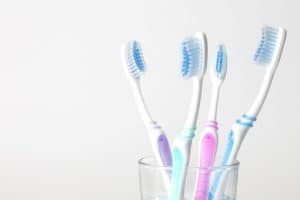
How Many Times a Day Should You Brush Your Teeth?
At Dr. Tracey Downtown Dental, your smile is our top priority. As your trusted dentist in downtown Calgary, we are committed to providing you with
Blogs

At Dr. Tracey Downtown Dental, your smile is our top priority. As your trusted dentist in downtown Calgary, we are committed to providing you with
Combining Botox with dental treatments is a popular choice when enhancing your smile and facial aesthetics. However, it’s natural to have questions about the safety

Halloween is a time for spooky fun, creative costumes, and delicious treats. However, it can also be a tricky time for your dental health that

You wake up, ready to embrace the day, but a sudden jolt of pain shoots through your teeth as you take that first sip of

For many, sugar can be a guilty pleasure. As someone’s favourite indulgence, it can satisfy sweet cravings easily. However, the impact of excessive sugar consumption

Teeth grinding (bruxism) is a common condition due to the several factors contributing to it. Beyond having an abnormal bite, it can be exacerbated by

The importance of oral hygiene cannot be overstated. Regular brushing, flossing, and dental check-ups are essential to maintaining healthy teeth and gums. But should you

When it comes to the cost of services provided by a downtown dental clinic, one document is more important than the rest. This is, of

The cost of a root canal in Alberta is governed by the Alberta Dental Association and College Guides for Dental Fees. In 2021, there are

Visiting the dentist is nowhere near the same experience it was in the past. Nowadays, it seems out of place to “fear” going to the
For Inquiries &
Over the Phone Bookings
Email Us
Patient privacy is protected at our office